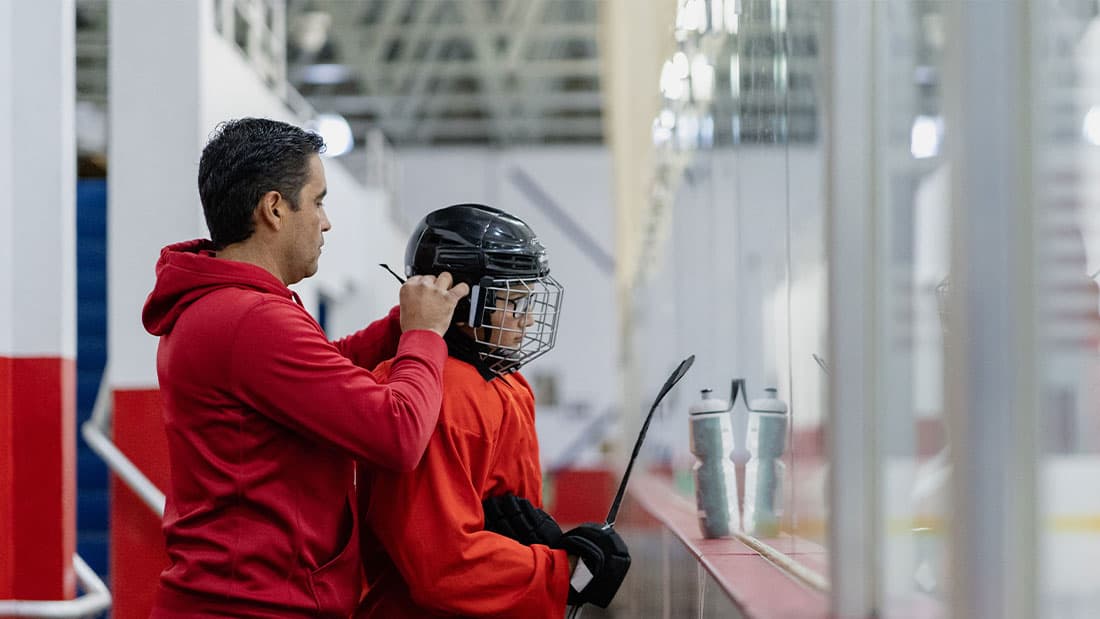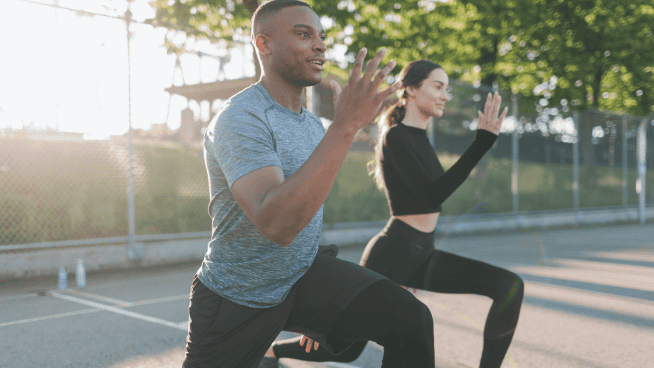Are Mandatory Early Morning Workouts Doing Young Athletes More Harm Than Good?
For as long as there have been sports teams, there have been mandatory early morning workouts.
These crack-of-dawn sessions train athletes to push through adversity and increase mental toughness. They also build team camaraderie through shared pain—an ingredient psychiatrists have found to be particularly powerful for building solidarity. But these workouts also create one huge problem for athletes—a lack of sleep. Unless you’re the extremely rare youth athlete who gets up at 5 a.m. every day, an impending early morning workout means you’ll need to set that alarm significantly earlier than you might like. As we continue to learn the vital role sleep plays in human health and performance, is it time to ditch this time-honored tradition in favor of a more logical, science-based alternative?
Let’s dive into the research and let you decide for yourself.
The Sleep-Deprived Athlete
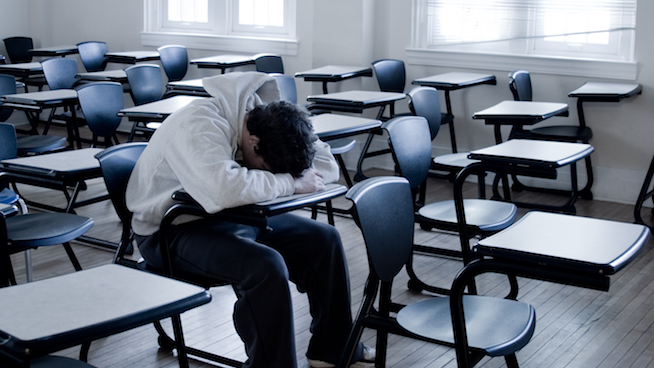
Before we get into how early morning workouts disrupt a young athlete’s sleep schedule, let’s first look at the wide-spread consequences that come with not getting enough sleep.
“Not meeting your sleep requirement has serious deleterious consequences. It significantly increases your risk of heart disease, stroke, diabetes, obesity, cancer—you name it,” renowned sleep expert Dr. James Maas told STACK. “Sleep deprivation lowers your immunity and puts your health at risk. Emotionally, sleep deprivation increases your risk of clinical depression and makes you more irritable and anxious. Your motor coordination and reaction time suffer. Cognitively, there’s a huge detriment. Concentration, critical thinking, creative thinking—it all suffers when you don’t meet your sleep requirement. Sleep quality and quantity is also the best prediction of how long we’re going to live. In short, sleep deprivation makes you clumsy, ignorant and shortens your life.”
For athletes, not getting enough sleep is particularly harmful. A 2011 study in the journal SLEEP found that Stanford basketball players were able to dramatically improve their on-court performance simply by increasing their total amount of sleep time. After increasing their sleep to 10 hours per night for five to seven weeks, players saw big improvements in sprint performance and shooting accuracy. Reported fatigue also decreased. “If you told an athlete you had a treatment that would reduce the chemicals associated with stress, that would naturally increase human growth hormone, that enhances recovery rates, that improves performance, they would all do it,” Dallas Mavericks trainer Casey Smith told ESPN on the power of adequate sleep.
Sufficient sleep also greatly reduces injury risk in young athletes. An abstract presented at the 2012 American Academy of Pediatrics National Conference found that adolescent athletes who slept eight or more hours each night were 68% less likely to be injured than athletes who regularly slept less. Sleep also makes a big difference in terms of academic performance. A 2016 review published in the Journal of School Health found that later school start times “generally correspond to improved attendance, less tardiness, less falling asleep in class, better grades, and fewer motor vehicle crashes” for adolescents.
RELATED: Think Sleep Doesn’t Matter? Many Seahawks Players Go To Bed Before 10 p.m.
How Much Sleep Do Young Athletes Need?

According to the National Sleep Foundation, teens (classified as anyone between the ages of 14 and 17) need 8 to 10 hours of sleep each night to function their best. For young adults (anyone between the ages of 18 and 25), that number is 7 to 9 hours of sleep. For school age children (between the ages of 6 and 13), the number is 9 to 11 hours of sleep.
Teens in general have a very tough time hitting that number—one study found that just 15% of teens reported sleeping 8.5-plus hours a night on school nights. When compared to the general population, athletes may benefit from even more sleep. In the aforementioned Stanford basketball study, the players (who qualified as young adults) saw a big improvement in their performance by extending their sleep to 10 hours per night for five to seven weeks. That’s an hour more than the 7-9 hours a night the NSF recommends for young adults.
The Issue With The ‘Just Go To Bed Earlier’ Argument
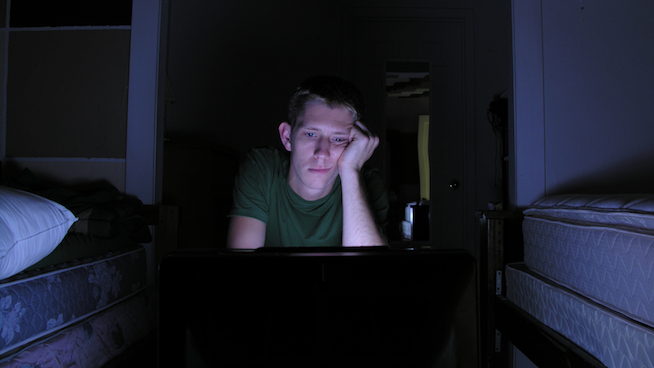
Unless their coach is really sadistic, an athlete will know in advance that they’ve got an early morning workout on their schedule. So why not just go to bed earlier the night before?
The majority of early morning workouts begin between 6 and 7 a.m. So let’s say a teen athlete has a conditioning session that starts at 7 a.m. That means they’ll need to rise out of bed by 6:30 a.m. at the latest. Working backwards, that would mean they need to be asleep by 10:30 p.m. the previous night to get 8 hours of sleep. If the workouts starts at 6 a.m., they’d need to be snoozing by 9:30 p.m. to hit their recommended amount of sleep.
That might not sound so hard to parents or coaches, but the adolescent body is on a totally different biological clock than older adults. Even if a teenaged athlete were able to finish their school work and other commitments in time to get in bed that early, their body can make it nearly impossible to actually fall asleep.
“Biological sleep patterns shift towards later times for both sleeping and waking during adolescence—meaning it is natural to not be able to fall asleep before 11 p.m.,” the National Sleep Foundation writes. According to a 2012 Wall Street Journal article, this shift to a later natural sleep time for adolescents continues until it peaks at age 19.5 in girls and 20.9 in boys. Only then do their biological clocks began to rebound back toward the earlier bed times which come natural for older adults.
And even if this natural shift to later sleep times didn’t exist, do we really want to force teens to feel like they need to be in bed by 9:30 p.m.? After a full afternoon of school, sports, homework, dinner with the family, etc., that leaves such little time for a teen to unwind and just be a kid. Feeling like every school day is totally packed with commitments and zero time for fun can quickly lead to burnout, which is defined as “exhaustion of physical or emotional strength or motivation usually as a result of prolonged stress or frustration.” Burnout is the major reason why a young athlete might choose to walk away from sports all together.
Sleep or Sweat?
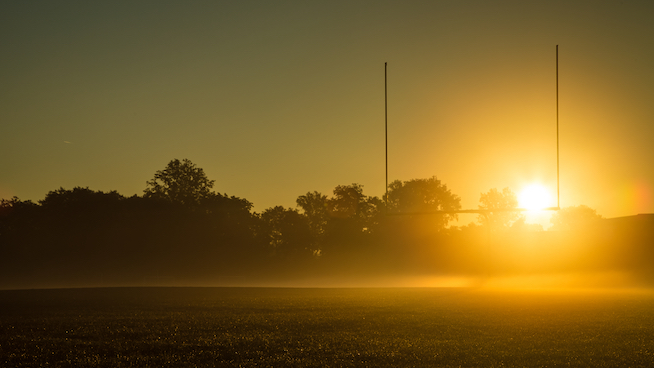
There’s certainly something to be said for the mental toughness and discipline that getting up at the crack of dawn for a grueling team workout instills in young athletes. But a lack of sleep can have disastrous consequences for young people in almost every facet of life, and many teens struggle to get enough sleep before having mandatory early morning workouts.
Even if they tried to get to bed earlier—a goal that seems unrealistic given how many commitments the modern student-athlete must balance—their biology can prevent them from dozing off anytime before 11 p.m. There’s also a huge difference between having a couple early morning workouts throughout the year and having them three times a week for an entire semester.
In a perfect world, a young athlete would be able to fall asleep at a natural time and then rise for a morning workout that begins at 8 or 9 a.m. But the academic schedule is almost always going to make that impossible. If a workout can be shifted from 7 a.m. to later in the day, that could go a long way toward helping young athletes improve their sleep duration and quality. Ultimately, it’s up to the coaches to weigh all the available options—and the benefits and drawbacks that come along with each—before deciding what’s best for their athletes.
Photo Credit: RedPandaProductions/iStock, FatCamera/iStock, epicurean/iStock, joshblake/iStock
READ MORE:
RECOMMENDED FOR YOU
MOST POPULAR
Are Mandatory Early Morning Workouts Doing Young Athletes More Harm Than Good?
For as long as there have been sports teams, there have been mandatory early morning workouts.
These crack-of-dawn sessions train athletes to push through adversity and increase mental toughness. They also build team camaraderie through shared pain—an ingredient psychiatrists have found to be particularly powerful for building solidarity. But these workouts also create one huge problem for athletes—a lack of sleep. Unless you’re the extremely rare youth athlete who gets up at 5 a.m. every day, an impending early morning workout means you’ll need to set that alarm significantly earlier than you might like. As we continue to learn the vital role sleep plays in human health and performance, is it time to ditch this time-honored tradition in favor of a more logical, science-based alternative?
Let’s dive into the research and let you decide for yourself.
The Sleep-Deprived Athlete

Before we get into how early morning workouts disrupt a young athlete’s sleep schedule, let’s first look at the wide-spread consequences that come with not getting enough sleep.
“Not meeting your sleep requirement has serious deleterious consequences. It significantly increases your risk of heart disease, stroke, diabetes, obesity, cancer—you name it,” renowned sleep expert Dr. James Maas told STACK. “Sleep deprivation lowers your immunity and puts your health at risk. Emotionally, sleep deprivation increases your risk of clinical depression and makes you more irritable and anxious. Your motor coordination and reaction time suffer. Cognitively, there’s a huge detriment. Concentration, critical thinking, creative thinking—it all suffers when you don’t meet your sleep requirement. Sleep quality and quantity is also the best prediction of how long we’re going to live. In short, sleep deprivation makes you clumsy, ignorant and shortens your life.”
For athletes, not getting enough sleep is particularly harmful. A 2011 study in the journal SLEEP found that Stanford basketball players were able to dramatically improve their on-court performance simply by increasing their total amount of sleep time. After increasing their sleep to 10 hours per night for five to seven weeks, players saw big improvements in sprint performance and shooting accuracy. Reported fatigue also decreased. “If you told an athlete you had a treatment that would reduce the chemicals associated with stress, that would naturally increase human growth hormone, that enhances recovery rates, that improves performance, they would all do it,” Dallas Mavericks trainer Casey Smith told ESPN on the power of adequate sleep.
Sufficient sleep also greatly reduces injury risk in young athletes. An abstract presented at the 2012 American Academy of Pediatrics National Conference found that adolescent athletes who slept eight or more hours each night were 68% less likely to be injured than athletes who regularly slept less. Sleep also makes a big difference in terms of academic performance. A 2016 review published in the Journal of School Health found that later school start times “generally correspond to improved attendance, less tardiness, less falling asleep in class, better grades, and fewer motor vehicle crashes” for adolescents.
RELATED: Think Sleep Doesn’t Matter? Many Seahawks Players Go To Bed Before 10 p.m.
How Much Sleep Do Young Athletes Need?

According to the National Sleep Foundation, teens (classified as anyone between the ages of 14 and 17) need 8 to 10 hours of sleep each night to function their best. For young adults (anyone between the ages of 18 and 25), that number is 7 to 9 hours of sleep. For school age children (between the ages of 6 and 13), the number is 9 to 11 hours of sleep.
Teens in general have a very tough time hitting that number—one study found that just 15% of teens reported sleeping 8.5-plus hours a night on school nights. When compared to the general population, athletes may benefit from even more sleep. In the aforementioned Stanford basketball study, the players (who qualified as young adults) saw a big improvement in their performance by extending their sleep to 10 hours per night for five to seven weeks. That’s an hour more than the 7-9 hours a night the NSF recommends for young adults.
The Issue With The ‘Just Go To Bed Earlier’ Argument

Unless their coach is really sadistic, an athlete will know in advance that they’ve got an early morning workout on their schedule. So why not just go to bed earlier the night before?
The majority of early morning workouts begin between 6 and 7 a.m. So let’s say a teen athlete has a conditioning session that starts at 7 a.m. That means they’ll need to rise out of bed by 6:30 a.m. at the latest. Working backwards, that would mean they need to be asleep by 10:30 p.m. the previous night to get 8 hours of sleep. If the workouts starts at 6 a.m., they’d need to be snoozing by 9:30 p.m. to hit their recommended amount of sleep.
That might not sound so hard to parents or coaches, but the adolescent body is on a totally different biological clock than older adults. Even if a teenaged athlete were able to finish their school work and other commitments in time to get in bed that early, their body can make it nearly impossible to actually fall asleep.
“Biological sleep patterns shift towards later times for both sleeping and waking during adolescence—meaning it is natural to not be able to fall asleep before 11 p.m.,” the National Sleep Foundation writes. According to a 2012 Wall Street Journal article, this shift to a later natural sleep time for adolescents continues until it peaks at age 19.5 in girls and 20.9 in boys. Only then do their biological clocks began to rebound back toward the earlier bed times which come natural for older adults.
And even if this natural shift to later sleep times didn’t exist, do we really want to force teens to feel like they need to be in bed by 9:30 p.m.? After a full afternoon of school, sports, homework, dinner with the family, etc., that leaves such little time for a teen to unwind and just be a kid. Feeling like every school day is totally packed with commitments and zero time for fun can quickly lead to burnout, which is defined as “exhaustion of physical or emotional strength or motivation usually as a result of prolonged stress or frustration.” Burnout is the major reason why a young athlete might choose to walk away from sports all together.
Sleep or Sweat?

There’s certainly something to be said for the mental toughness and discipline that getting up at the crack of dawn for a grueling team workout instills in young athletes. But a lack of sleep can have disastrous consequences for young people in almost every facet of life, and many teens struggle to get enough sleep before having mandatory early morning workouts.
Even if they tried to get to bed earlier—a goal that seems unrealistic given how many commitments the modern student-athlete must balance—their biology can prevent them from dozing off anytime before 11 p.m. There’s also a huge difference between having a couple early morning workouts throughout the year and having them three times a week for an entire semester.
In a perfect world, a young athlete would be able to fall asleep at a natural time and then rise for a morning workout that begins at 8 or 9 a.m. But the academic schedule is almost always going to make that impossible. If a workout can be shifted from 7 a.m. to later in the day, that could go a long way toward helping young athletes improve their sleep duration and quality. Ultimately, it’s up to the coaches to weigh all the available options—and the benefits and drawbacks that come along with each—before deciding what’s best for their athletes.
Photo Credit: RedPandaProductions/iStock, FatCamera/iStock, epicurean/iStock, joshblake/iStock
READ MORE:





